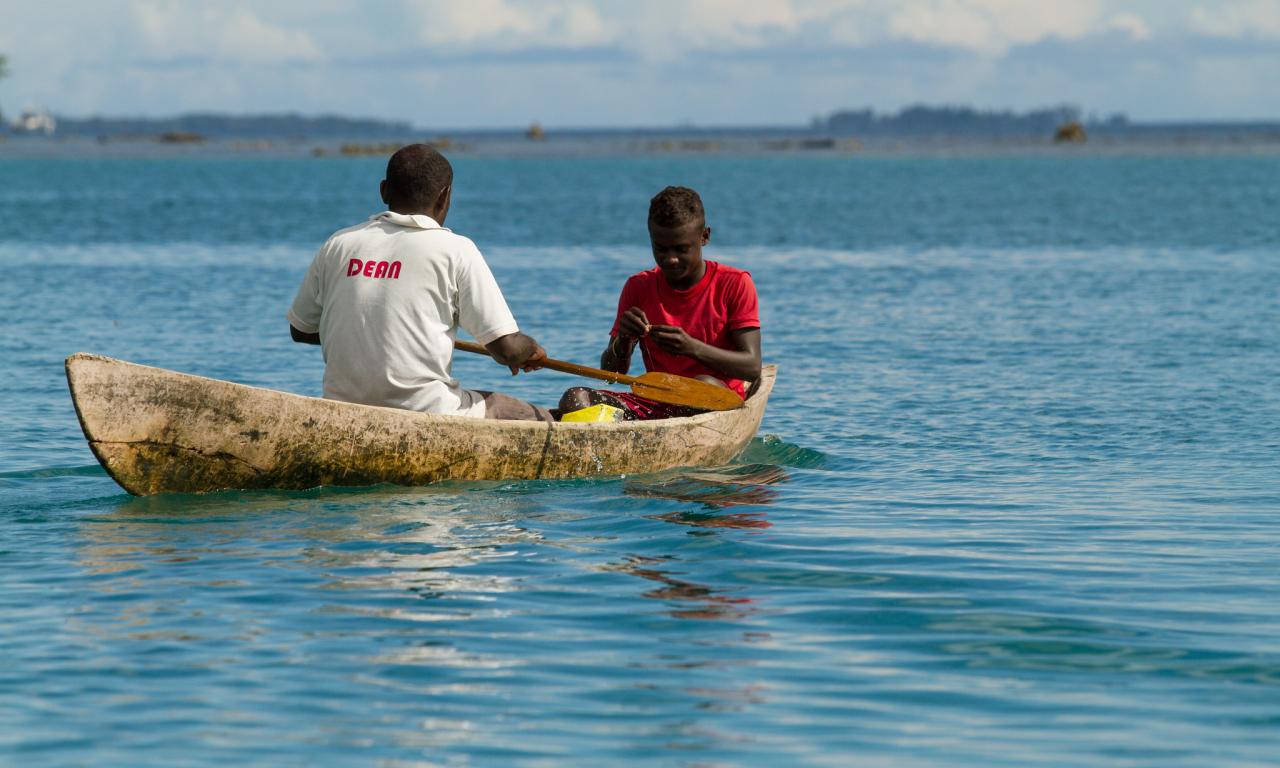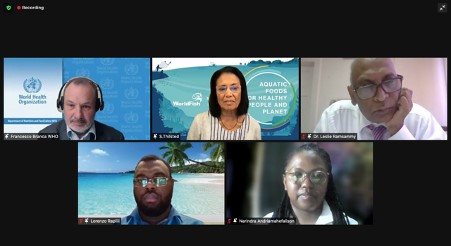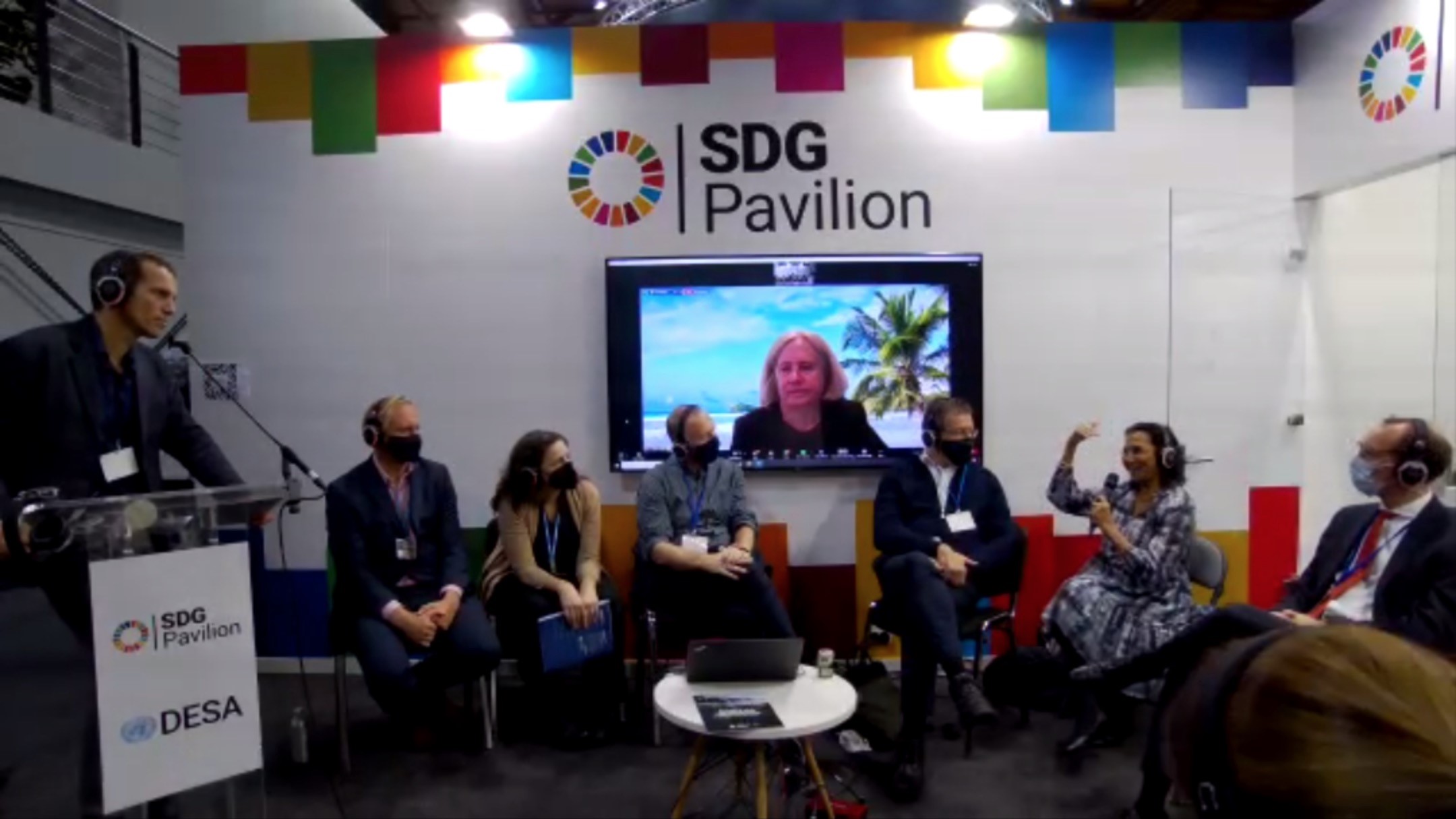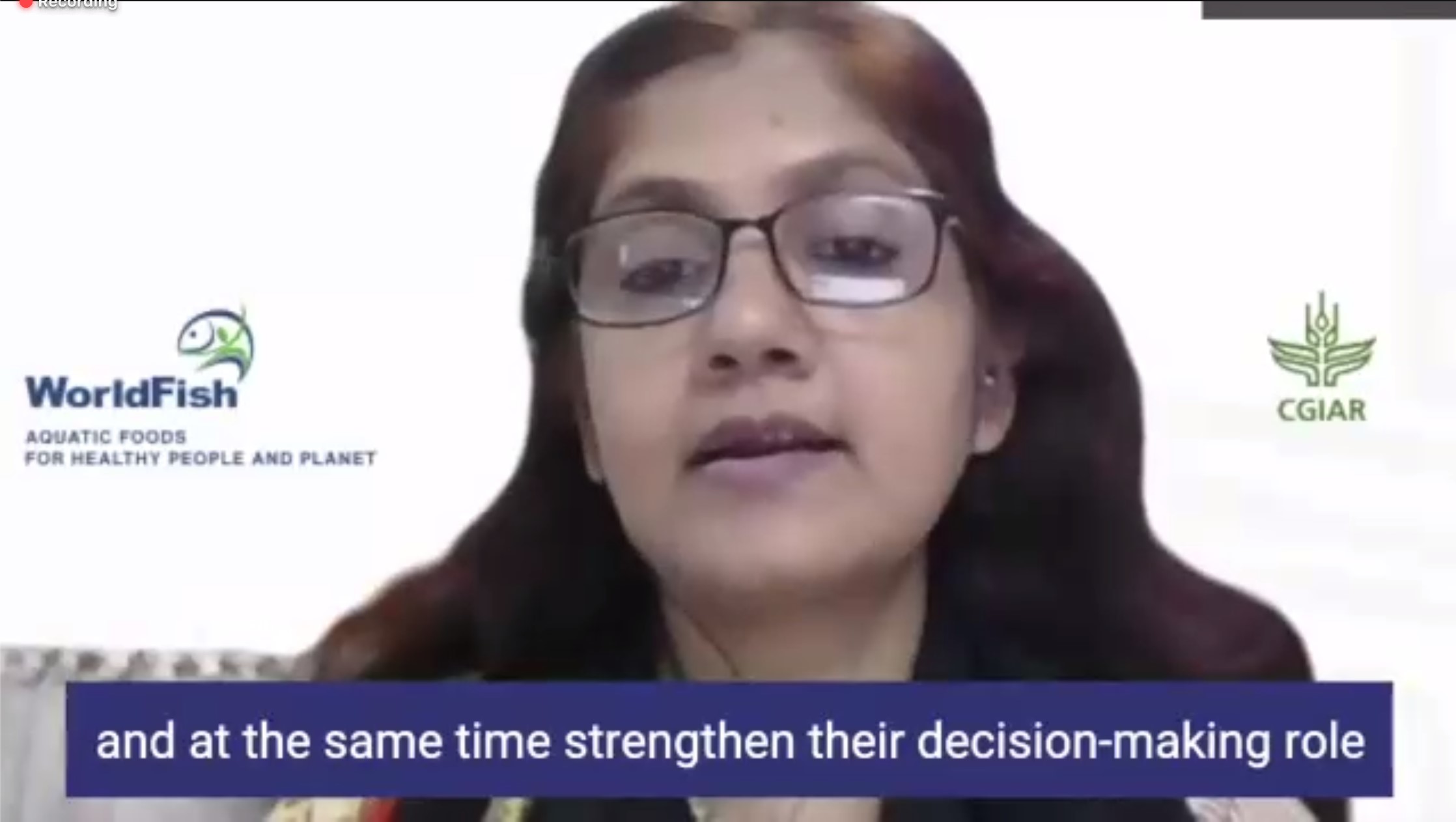
- WorldFish attended COP26 to emphasize the links between climate, health and nutrition, with aquatic foods being a nature-positive solution for all
- Attempts to mitigate climate change and build resilient and equitable food systems must be people-centric and look beyond production
The 2021 United Nations Climate Change Conference, better known as COP26, concluded with a new global climate agreement as nations reaffirmed pledges to hold warming to 1.5 degrees Celsius above preindustrial levels, the number set out in the 2015 Paris Accords and largely considered the threshold to stave off the worst impacts of climate change.
After two weeks of negotiations in Glasgow, Scotland, over 140 countries committed to achieving net-zero emissions in the coming decades, and another hundred pledged to end deforestation by 2030.
However, global emissions need to fall around 45 percent by 2030 to give the world a chance of limiting warming to 1.5 degrees Celsius by 2100. Instead, they're expected to rise nearly 14 percent over the next nine years.
Global food production offers a significant entry point for emission reductions, as food systems currently account for 25 percent of anthropogenic greenhouse gases. A variety of COP26 events thus focused on building sustainable and equitable food systems, with WorldFish championing the power of aquatic foods to be a nature-positive solution to hunger and poverty.
Climate change is expected to impact aquatic food systems around the world, with rising tides and more frequent and intense extreme storms threatening both capture fisheries and aquaculture.
In attempts to build more resilient aquatic food systems, WorldFish joined a range of events to discuss climate adaptation measures and mitigate threats to fish-based livelihoods and food and nutrition security.
Aquatic foods for healthy, sustainable diets
In a webinar hosted by the World Health Organization (WHO), Achieving Healthy Diets from Sustainable Blue Food Systems in Small Island Developing States, panelists spoke of the need to draw clearer links between climate change, nutrition and health.
“Climate change is pushing us [Pacific island nations] towards diet-related non-communicable diseases and an overreliance on nutritionally poor food imports. We can no longer accept COP negotiations that don’t yield immediate actions and results—I demand action from COP to address the impact of the climate crisis on the health of my people,” said Lorenzo Raplili, a climate justice officer at the Pacific Islands Climate Action Network.
Nutrient-rich aquatic foods are integral to the diets of Pacific island communities, but climate change is reducing fish supplies and coastal resources, forcing an overdependence on processed food imports.
For her part, Shakuntala Thilsted, WorldFish’s global lead for nutrition and public health and 2021 World Food Prize Laureate, spoke of how the Blue Food Assessment demonstrated the potential of diverse aquatic foods to contribute to net-zero climate emissions while nourishing both people and planet.
“The Blue Food Assessment team spent two years analyzing data and evidence to evaluate synergies and trade-offs to aquatic food systems in order to achieve healthy, equitable and sustainable diets for all,” said Thilsted.
Bridging nutrition with climate action

As part of the Blue Foods Assessment papers, aquatic foods sourced from fisheries and aquaculture were shown to have lower carbon footprints on average compared to terrestrial animal agriculture.
Aquatic foods also provide an affordable and accessible source of micronutrients for much of the world’s rural poor, representing a critical lifeline in food-insecure communities.
In a webinar hosted by the UN Global Compact, Blue Food: Businesses bridging nutrition needs with climate action, panelists thus convened to discuss how aquatic foods are critical to global food security, especially in low- and middle-income countries, and to emphasize the importance of bridging climate and nutrition action for more equitable outcomes.
“We must make better use of traditional knowledge. Now, we have great innovations that can help us combine new technologies with traditional knowledge. We are in a much better place to put traditional knowledge at the forefront and get that incorporated in our solutions,” suggested Thilsted.
Seaweed as a nature-positive solution
Seaweed has significant potential as a nature-based climate solution with enormous scaling potential. Sustainable seaweed farming has a low-environmental impact, offers a cheap and nutritious food source, provides revenue to rural coastal communities and contributes to carbon sequestration.
WorldFish’s Shakuntala Thilsted joined the panel to champion the diversity of aquatic foods, including diverse species of microalgae, as key to building resilience in aquatic food systems.
At the Seaweed as a Nature-Based solution for climate change side event hosted by UN Global Compact, the World Food Prize Laureate shared, “Seaweed can be used as a dry product thereby increasing the concentration of micronutrients and essential fatty acids by a factor of between four and five. This is extremely important for small children because their gastrointestinal tract has a lower capacity, so they need products highly dense in micronutrients and essential fatty acids."

Preserving Asian mega-deltas
River deltas, where rivers flow into a stagnant body of water and deposit vast quantities of sediment, are a crucial natural resource around the world. However, as climate change interrupts river flow and sediment deposition, widespread subsistence occurs, causing land to sink. The problem is particularly pronounced in the major river deltas of Asia.
In a virtual event hosted by the GCRF Living Deltas Hub and CGIAR’s program on Securing Asian Mega-Deltas, researchers presented locally-led adaptations as innovative solutions to build climate-resilient livelihoods and preserve the natural resources sustained by Asian mega-deltas.
“I believe that ensuring access to climate information and enhancing climate services can promote women and youth’s involvement in daily management decisions and strengthen their abilities to adapt to and offset climate impacts,” said Peerzadi Rumana Hossain, a climate change research scientist at WorldFish.

Ocean Action = Climate Action
Ocean-based climate mitigation and adaptation solutions are essential to the achievement of the Paris Agreement, with the ocean absorbing and storing sixteen times as much carbon as the terrestrial biosphere.
At a webinar hosted by UN Oceans, Ocean Action = Climate Action, Essam Yassin Mohammed, WorldFish’s global lead for climate resilience and environmental sustainability, joined a diverse panel to speak on how preserving ocean biodiversity is crucial to buffer and mitigate the impacts of climate change.
“After reading the draft Glasglow agreement, my first reaction is that COP26 is a big win for the ocean and a big win for science. There are significant references to ocean-based climate action and efforts to inform policymakers. It presents a great opportunity to join hands in our efforts to achieve impacts at scale,” said Mohammed.
